Search Results
Showing results 1 to 8 of 8
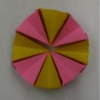
Paper Proteins
Source Institutions
In this activity, learners use an origami template to design eight amino acids. Learners configure the amino acids to form a protein. Use this activity to introduce proteins and amino acids.

Building a 3-D Space Maze: Escher Staircase
Source Institutions
In this activity (page 95 of the PDF), learners create Escher Staircase models similar to those that were used by Neurolab's Spatial Orientation Team to investigate the processing of information about
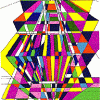
Our Sense of Sight: Color Vision
Source Institutions
In this activity, learners investigate color vision as well as plan and conduct their own experiments.
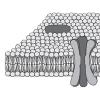
Build-A-Membrane
Source Institutions
In this activity, learners cut, fold, and paste paper representing biomolecules to create a three-dimensional cell membrane with embedded proteins.
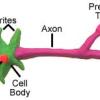
The Model Neuron
Source Institutions
In this activity, learners create a model of a neuron by using colored clay or play dough. Learners use diagrams to build the model and then label the parts on a piece of paper.
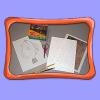
Crazy Camouflage
Source Institutions
In this activity about camouflage, learners create a model that shows how a flounder is able to blend into a variety of environments.
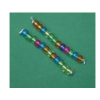
Protein Bracelets
Source Institutions
In this activity, learners use beads, which represent amino acids, to create protein bracelets. Learners examine the relationship between amino acids and proteins.
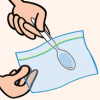
Glitter Slime
Source Institutions
In this activity on page 8 of the PDF, learners make a slimy substance very similar to mucus, and sprinkle it with glitter to imitate the way that allergens are trapped.
